GAPS Diet While Pregnant
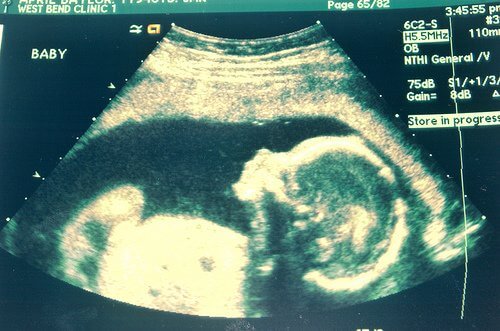
Written by Kate Tietje, Contributing Writer
Over the last few weeks, we’ve been talking a lot about adrenal fatigue here, and one of the potential remedies Stephanie has mentioned is the GAPS diet. Please go back and read her post on preparing for the GAPS diet to learn more about it, if you haven’t seen it yet!
I’ll admit it: the GAPS diet is not the easiest in the world. But once you’ve done it a couple of times, it really is not that bad. Knowing some tips and tricks for getting enough to eat definitely helps, as does having a bunch of GAPS-friendly recipes.
But there’s a special issue to consider right now, for many of us (me included): what if you’re pregnant? Is GAPS safe? Beneficial? Is it even doable while you’re pregnant?
The answer may surprise you: Yes, it is! GAPS is a definite shift in eating habits. And it may feel hard to get enough. But rest assured, GAPS is completely safe and beneficial during pregnancy.
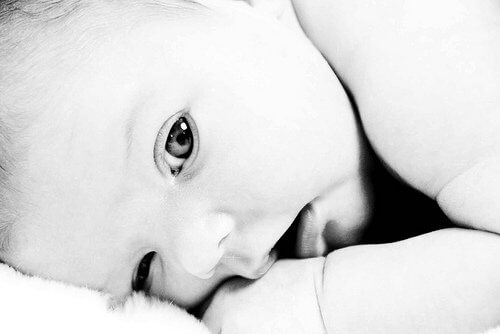
Image by vividexpressions
Safety: Will My Baby Get What He Needs?
This is the most common concern, and one that most doctors would share with you. Most doctors would not recommend doing any sort of limited diet while pregnant, and would definitely not want you to be completely grain-free, unless you had a medical condition requiring it (which, if you have GAPS symptoms, you might…but many doctors don’t believe in that, either).
It’s important to ask, though: what do I get from grains that I cannot get from other foods?
Grains are a primary source of carbohydrates, which you certainly do need. But you can also get carbs from fruits, vegetables, honey, beans, and certain dairy products (some are allowed on GAPS). There is no difference, really, between the carbs in grains and the carbs in these other foods. Sweeter foods, like fruit, are rather high in carbs.
It’s important to note that there are different “versions” of GAPS: full GAPS, and different stages of the introduction diet. If you are pregnant, you must do the full version in order to get enough nutrients. Foods like hard cheeses, yogurt, kefir, most fruits, white beans, etc. (the most carb-heavy foods) are allowed on full GAPS, but not on most of the intro stages. It is not safe or recommended to do intro while pregnant. In fact, depending on your gut health, you may even choose to consume raw milk during pregnancy, as well (which is typically not allowed on the diet until you are transitioning off of it).
What other nutrients are found in grains? According to the food pyramid, B vitamins (namely folate) and fiber are the other important nutrients in grains. Fiber can be found in beans (and isn’t really as important as we think it is; that is another subject entirely!), and the B vitamins in grains are typically synthetic, added during the fortification process. (That isn’t true if you sprout and grind your own grains, but most women don’t do that.) B vitamins can be found in many other sources, like leafy greens (primary source), but also various animal products, kombucha, and lots more. And from these sources, where they occur naturally, they’re much better absorbed.
So, there’s no nutrient in grains that you can’t get from other foods. Therefore, you’re not depriving your developing baby of anything.

Image by vmiramontes
How Can I Eat Enough?
This is really a concern for everyone on GAPS, not just pregnant women. But of course pregnant women need more than most, so it’s especially a concern.
Sticking to full GAPS only will definitely help. Cutting out all dairy and fruit will not leave many options. You will need a lot more meat than usual. But as pregnant women really need a lot of protein anyway, this is actually a good thing: you’ll definitely get a lot!
A daily meal plan might look like this:
- Lemon-water and a hearty meat-and-veggie soup for breakfast (and maybe a smoothie with yogurt or kefir too); or eggs cooked in coconut oil or ghee
- Muffins made with nut flour for snack
- Meat with veggies for lunch, and fermented food (pickles, sauerkraut, kombucha)
- An apple with peanut butter for snack
- A thick stew and a salad for dinner
- Cheese and pickles for bedtime snack
This would likely be enough food, and plenty of fat/protein. Don’t be afraid to add extra fat to soups. Pancakes or muffins made with nut flours can be extremely high in both fat and protein, as well. You will probably really need to eat all of those snacks in a day, and maybe even more. Having jerky around, or almond flour muffins, or extra soup/stew is always a good idea, so that you can eat whenever you are hungry. A few slices of cheese is always a good snack. Crackers made from almond flour and topped with cheese, canned wild salmon, or chicken liver pate is always a good snack too.
Eat when you are hungry, and make sure you have plenty of options, and you will be okay.
What if I’m Nauseous?
Starting GAPS in early pregnancy might present its own challenges: what if you feel too nauseous to eat much? GAPS can also exacerbate nausea because of the die-off symptoms.
Stick to lots of soups and fresh-squeezed juices (we like apple-carrot juice). Make almond flour crackers if nibbling something dry helps you to feel better.
Take Epsom salt baths in order to minimize die-off symptoms; it could help you relax and maybe reduce your morning sickness, too.
Just go slow. Eat whatever sounds good to you, even if it isn’t strictly GAPS-legal (unless it’s, you know, donuts, ice cream, pop, etc.!). I craved sprouted grains when I was newly pregnant, and lots of fresh vegetables. I ate a lot of cold sandwiches, plain grilled chicken, and salads. Completely GAPS-legal? No. Close enough when I was nauseous? Yes.
The Bottom Line
GAPS is completely doable in pregnancy. Just make sure you share your diet plan with your doctor or midwife, so that they know what’s going on and can advise you as necessary. Eat when you’re hungry and make sure you have plenty of options around. You’re not depriving your baby at all. In fact, because you’re consuming so much protein, fermented foods, and a lack of junk, you’re giving your baby an excellent start in life! (Don’t forget your fermented cod liver oil, too!)
Have you done GAPS or another special diet during pregnancy? What was your experience?
Top image by mbaylor
Disclaimer: I am not a certified medical professional of any kind and am not qualified to give you medical advice. My goal is to help to educate and inspire you to take responsibility for your own family’s health and make informed choices of your own, not to consult you on medical treatment. Especially during pregnancy, always consult your own midwife or health practitioner before making decisions regarding medical treatments of any kind.

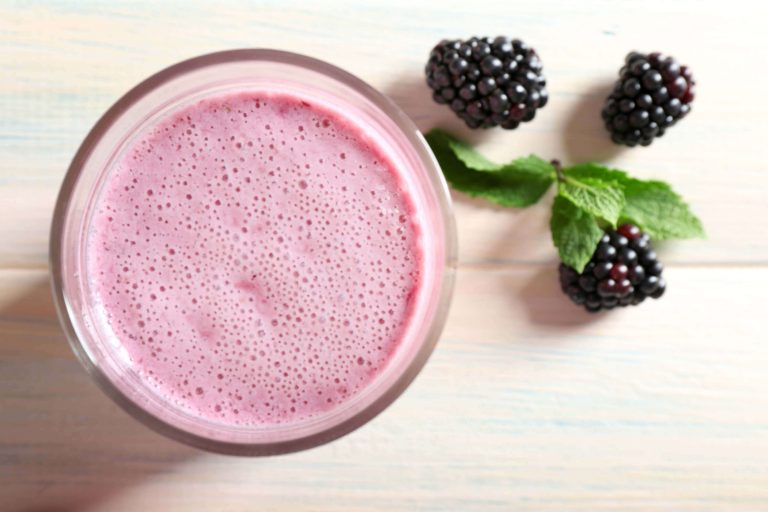
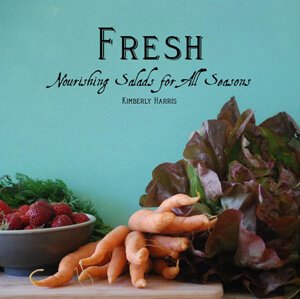
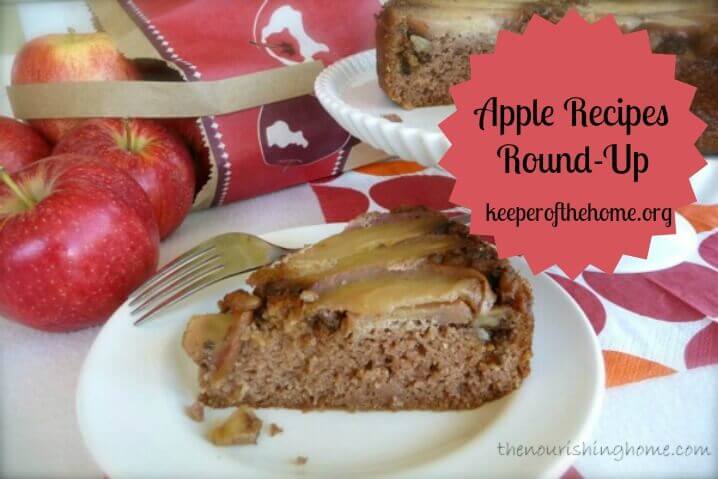
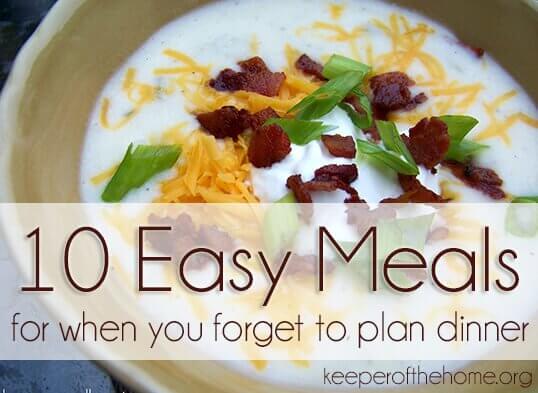
Wonderful post! I have often thought I would like to try GAPS (to heal my gut), but was too scared to do it while pg (I’m 26 weeks). Good to know it’s safe. Maybe I’ll try to eat a little more GAPS-friendly now.
And I would LOVE to read a post on fiber. I used to be obsessed with getting enough fiber (suffer from constipation). Now I don’t worry so much about fiber grams but about nutritous food instead. Would love to hear your thoughts on the subject.
I was wondering if anyone knows if GAPS can help adrenal fatigue at all. I am finishing up my second week of the GAPS diet. I sped glided through the intro in a little over a week, but I didn’t lose a single bit of weight – I actually gained a little! (I know that’s not the purpose of the diet, but my BMI has recently crept up to the high end of healthy and I was really hoping to fix that.) I believe this is due to adrenal insufficiency. I have all the symptoms. Anyways, one doctor said low carb diets are bad for adrenal insufficiency,putting more stress on them to elevate blood sugar . So, I was wondering can GAPS help me in that area or not?
From my experience low carbs can worsen adrenal problems cause of the need to raise your blood sugar. I have quite a few chronic health problems, which anxiety/panic disorder is one of them- and seems to be very related to keeping a steady blood sugar (things that have helped are not eating any sugar at all, no fruit (low sugar fruits might be an exception for people like berries), no potatoes (unless fried in oil), no white flour or grains…. the only carb I have been able to eat is quinoa (quinoa is gluten free and not a grain, but is eaten like one… it is actually a seed related to beets, swiss chard , etc. Quinoa is super high in protein and a complete protein. It is easily digestible and SUPER nutritious!!! I have found that I need to eat good amounts of quinoa or my anxiety gets bad too.
Low blood sugar from not properly eating carbs can be just hard on the adrenals from my experience as eating too many carbs.
I have found eating high protein with a good helping of quinoa has helped me to have the most stable blood sugar (which is very important for adrenal health!!!!) I make skillet dishes for myself at just about every meal. These have been some of my favorite combinations:
Cooked Quinoa
1 type of meat- Ground Beef, Ground Bison, Diced up chicken or diced up turkey, canned salmon
1/2 can of Great Northern beans (I use Bush’s as it has a nice sauce which makes a nice skillet dish)
1 can of green beans
1-2 TBS of cooking oil- I use grapeseed…you could also use olive oil, etc.
You can also add fresh veggies like onions, chopped celery, etc.
I would highly suggest pregnant women who want to avoid grains still include carbs like quinoa, or even oatmeal if you can. Both quinoa and oatmeal were also used to help increase mother’s milk supplies in traditional cultures- so both are GREAT for nursing moms!
My husband desperately needs to go on the GAPS diet and I would love to do it with him, but I’m currently pregnant AND breastfeeding. I can barely keep up now with consuming grains. I’m just not sure I could pull it off. I’m starving all. the. time. Any readers tried it before and have any tips? Or do I just try to create GAPS meals and have non-GAPS snacks for myself?
@Megan, I am currently pregnant AND tandem nursing! So yes I have done it. 🙂 I do “cheat” a little by eating a lot more raw dairy than is allowed and occasional rice or corn (non-gluten grains that I don’t react to) but I can easily do it without, as long as I have my dairy.
@Kate @ Modern Alternative Mama,
Well, we’ve started doing GAPS friendly meals, but I’m still snacking as I please. I’ve cut way back on grains and sweets though as I don’t want to tempt my husband with baked goods and such. We have access to raw milk again (just this week!) so that’s making it much easier for me. I’m doing tons of homemade yogurt and drinking plenty of raw milk. I’m finding that having to make GAPS friendly meals for my husband has really forced me to branch out in my cooking and am actually quite enjoying it. Thanks for the encouragement!
Hi there…I was wondering if there was a cookbook/recipe companion to go with the GAPS diet. I am under the pregnant, gluten free and nauseous category..looking for help!! Thanks!
@jennifer davis, Actually I am working on one…but shhh…it’s still a secret. 🙂
@jennifer davis, There is the Gaps guide that can be purchased and is very helpful as it has some recipes in it. There is also a website to go to, to get more recipes. http://www.gapsguide.com or google gaps diet and there will be lots of recipes for free.
thANKS!!
Internal Bliss is awesome for GAPS recipes!
I’ve never even considered GAPS because I’m not sure how it would work with food allergies. Among my family, we have life threatening allergies to peanuts and tree nuts along with less severe but still serious allergies to eggs and dairy. How do you possibly do something like GAPS with no nuts, eggs or dairy? My child that is allergic to nuts, dairy and eggs consumes a lot of grains and I can’t imagine taking that away from him.
@Brenda, Hmmm, that would be pretty challenging. Eggs and nuts (or at least, seeds) really do help to make the diet doable.
I’m curious if anyone else has done it with such severe limitations? I’m sure it can be just, it would just take more creativity. 🙂
I know this is a late answer to this thread, but I wanted to put my experience in in case the person who originally posted this is still following. I would obviously not start with reintroducing any foods determined to be life threatening allergies, but My daughter and I both had a long list of food allergies (including eggs, almonds and milk for her and oranges, olives (including oil) for me.) We found that once we went through the early stages of gaps, and our intestinal wall built back up, we were able to reintroduce all of our allergy foods. I speak only from personal experience, but I bet the intro diets (which are mostly broth, probiotic meat and cooked veggies) could help heal your intestines enough to try some of the allergy foods that were symptomatic before, and even if it didn’t cure food allergies like it did for us (NOTE: we were both off of our allergen foods for 6 months + – long before we started GAPS– before reintroduction) it wouldn’t hurt to go through that gut healing . .
I would like to throw out a warning for those who are pregnant. I just talked to my midwife if she thought GAPS would be safe for me to try as I am 3 months pregnant. She warned me very strongly against it.
It’s not that you won’t get the nutrients that you need to maintain a healthy pregnancy, but that the toxins that your body gets rid of will go directly through the placenta (which acts like a sponge) and can be very dangerous to the baby. She has personal experience with a mother who was on a GAPS diet a few months before her pregnancy and into the pregnancy (she wasn’t sure how long she stayed on it) and the baby is mentally delayed quite a bit (he’s 2 yrs old now). After some testing they concluded that it was because of the toxins passing through the placenta and that he received metal poisoning in utero.
I’m not saying GAPS can’t be done, but please be aware of this and talk with your midwife or care provider.
@Katie, I absolutely agree that you should talk to your midwife or doctor about it, and I think it’s wise to bring up the topic of the toxins.
As far as the toxins go, I think that it is possible to do full GAPS and not be releasing a lot of toxins. If you had just recently started, then toxins would certainly be released, as well as if you were taking full doses of probiotics or doing a bunch of juicing. After a while, though, the toxins aren’t released as strongly.
The thing is, the GAPS diet is ultimately just a grain/sugar/starch free diet, which is not a bad thing. Those things alone don’t necessarily cause you to detoxify (although yes, they would if your body was really used to them and you suddenly went off of them, and if you had high Candida yeast levels, for example). What really causes the detoxification is the severe food restrictions in the Intro diet, the high levels of probiotics, the juicing, etc. The Full GAPS diet includes a more varied diet, and is not so focused on the detoxification process.
My personal concern would be for those beginning to go on the GAPS diet while pregnant, or those doing the Intro near the beginning of a pregnancy. But I think that much of the risk would be removed after having already been on it for several months before deciding to get pregnant, with the majority of the toxins released in the early die-off phases.
Personally, I am on the Intro diet right now, and would love to get pregnant sometime in the not so distant future. But, I will wait until I am through the Intro and onto the Full diet, and can tell that my body is no longer heavily detoxing before even trying to conceive. If, once pregnant, I felt that my body was still detoxifying or not handling the diet well, I would not hesitate to continue the diet for the rest of my family, but for myself would back off of the probiotics to a low dose, and add back in a slice of sourdough bread or starchy veggies (like sweet potato) every day to help counteract those effects.
All that said, I’m not an expert and I’m not a midwife (and neither is Kate who wrote this post). Most definitely, speak to your health practitioner before making a decision!
@Stephanie @ Keeper of the Home,
Thanks for providing this commentary. I’ve already done a GF/DF diet before and am now transitioning into Full GAPS (and love how you explain a day to day diet for a pregnant woman) and wouldn’t mind conceiving sometime soon. I am a bit worried though about transferring toxins, but since I’ve already been doing a more “clean” diet for a few months, I feel like much of my toxins have been removed. My poor liver just needs some love and I need to get a handle on yeast — those are my main “symptoms,” and my acupuncturist/herbalist says I’m still detoxing.
So I’m doing what I can to eat well right now and am hoping that as my gut gradually heals I’ll create a healthier environment for a little one!
I agree that it is the intro that really detoxifies a person. My son and daughter were on full GAPS for 5 months before we tried the intro (this was for eczema). My daughter didn’t respond to the full GAPS diet much, but once we did intro, she had the fiercest die-off you can imagine. It was unreal! So definitely, don’t do intro while pregnant or breastfeeding, but full GAPS is totally doable in my opinion. I’m currently pregnant and eat basically what my kids eat (they are at about stage 5/6 of the intro now), but I do have a little sourdough bread or fruit as snacks from time to time.
I have yeast issues, is it ok if I go through the GAPS diet?? or should I clear off the yeast?
Thanks!
@Andrea, GAPS will definitely adress yeast issues, so no need to try to deal with them separately.
LOVE this blog! I nominated it for Stylish Blog Award: http://mamainthequietcorner.wordpress.com/2011/02/11/stylish-blogger-award-from-sally-at-fairy-dust-teaching/
Every topic that is written about on here is so informative and important! Keep up the great work 😀
@Beth, Aww, thanks Beth! 🙂
Very helpful post.
I’m not on a GAPS diet, but I don’t eat any refined carbs, just those found in veggies and fruit. I’ve been accompanying them with eggs, nuts, cheese and tinned herring. The protein helps me stay satisfied and confident that I’m not depriving my growing baby.
Great post! I have been flirting with the idea of a GAPS diet for a long time, but used breastfeeding and nursing as my excuse. Great blog too!
Hi. I am 5 months pregnant and developed lactose intolerance at two months. I have never had any known problem consuming diary before this, even with two other pregnancies. I am able to have 3 oz of hard cheese per day, but no yogurt – not even raw milk 24 hr fermented yogurt, or milk. I am very confused and frustrated! Any ideas?!